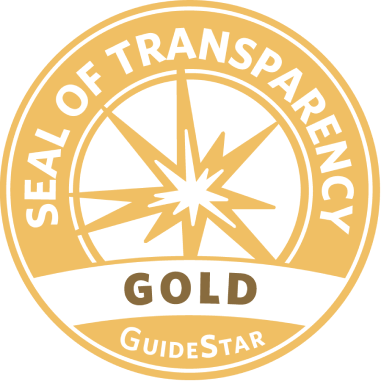In times of crisis, the ability to communicate effectively can be a matter of survival, empowerment, and hope. For women facing challenges such as displacement, poverty, or systemic inequality, learning English can provide access to critical resources, amplify their voices, and open doors to opportunities that transform their lives.
At Omid Foundation, we work to support women in crisis by providing them with tools for resilience and self-sufficiency. Among these tools, English language education has proven to be a lifeline. This article explores why English is crucial for women in crisis, how it empowers them, and the role organizations like Omid Foundation play in making this possible.
The Unique Challenges Women in Crisis Face
Women in crisis often face multilayered challenges, including:
- Displacement: Conflict, natural disasters, or persecution force many women to flee their homes. In new environments, they must navigate unfamiliar systems, languages, and cultures.
- Limited Resources: Access to education, employment, and healthcare is often restricted, particularly for women in marginalized communities.
- Systemic Barriers: Gender inequality, discrimination, and societal norms frequently limit women’s agency and opportunities.
In these situations, the ability to speak and understand English can be a game-changer, offering women a pathway to overcome these barriers.
How English Serves as a Lifeline
- Access to Critical Resources
In crisis situations, access to vital information can save lives. Humanitarian organizations, governments, and NGOs often use English to communicate key information about healthcare, legal rights, and aid distribution.
Understanding medical advice: Women can access healthcare services more effectively when they understand instructions or can communicate symptoms.
Navigating asylum processes: English proficiency helps women complete legal documentation, understand their rights, and communicate with authorities.
Accessing aid programs: Many international aid organizations provide resources and services in English, making language skills essential for participation.
- Economic Empowerment
English is the global language of business and commerce. For women in crisis, learning English can open doors to job opportunities, entrepreneurship, and financial independence.
Employment opportunities: Many jobs in hospitality, education, and international organizations require English proficiency.
Entrepreneurship: Women can use English to market their products or services to a global audience through online platforms.
Remote work: English skills enable access to freelance opportunities such as online tutoring, writing, or customer service roles.
Economic empowerment not only provides financial stability but also enhances women’s ability to support their families and communities.
- Amplifying Voices
Women in crisis often feel invisible or unheard. English allows them to tell their stories, advocate for their rights, and connect with allies globally.
Advocacy: English enables women to participate in international forums, share their experiences, and raise awareness about the challenges they face.
Storytelling: Writing blogs, participating in interviews, or sharing stories on social media helps women build connections and foster understanding.
Building networks: English facilitates communication with mentors, advocates, and organizations that can provide support and opportunities.
- Education and Personal Growth
For many women, learning English is the first step toward further education and personal development.
Higher education: English proficiency is often a requirement for scholarships and university programs, particularly abroad.
Skill-building: Access to online courses, workshops, and training programs in English allows women to acquire new skills and qualifications.
Confidence and self-worth: Mastering a new language boosts self-esteem, helping women believe in their ability to overcome challenges.
Success Stories: Women Empowered by English
- Fatima’s Story
Fatima, a young woman from Afghanistan, fled her home due to conflict and sought refuge in Iran. Initially, she struggled to communicate and felt isolated in her new environment. Through an English program offered by Omid Foundation, she gained language skills and confidence. Fatima now works as a translator for an international NGO, helping other refugees access critical resources.
- Layla’s Journey
Layla, a survivor of domestic violence in Iran, joined Omid Foundation’s English classes as part of her journey to rebuild her life. Learning English allowed her to secure a remote job as a customer service representative for a global company. Today, Layla is financially independent and mentors other women in similar situations.
These stories highlight how English can transform lives, turning adversity into opportunity and despair into hope.
The Role of NGOs in Providing English Education
Organizations like Omid Foundation play a pivotal role in making English education accessible to women in crisis.
- Tailored Programs
We design programs specifically for women, addressing their unique needs and challenges. For example, our courses emphasize practical language skills for real-life scenarios such as job interviews, healthcare appointments, or legal processes.
- Safe Learning Environments
Many women in crisis come from backgrounds where education is inaccessible or unsafe. Omid Foundation provides supportive and secure spaces where women can learn without fear or judgment.
- Holistic Support
Language education is often part of a broader approach that includes counseling, vocational training, and mentorship. This holistic support ensures that women have the tools they need to succeed.
- Leveraging Technology
Through online classes, mobile apps, and digital resources, we make English learning accessible to women in remote or marginalized areas.
Overcoming Barriers to Learning
Despite its benefits, learning English can be challenging for women in crisis due to factors such as limited time, financial constraints, or societal pressures. Omid Foundation addresses these barriers by:
Offering flexible schedules: Classes are designed to accommodate women’s responsibilities, such as childcare or work.
Providing financial aid: Scholarships and free programs make education accessible to all, regardless of economic status.
Raising awareness: Community outreach initiatives challenge societal norms and encourage women to pursue education.
A Call to Action
The transformative power of English cannot be understated. It is a lifeline for women in crisis, enabling them to access resources, advocate for their rights, and build better futures. However, providing these opportunities requires collective effort.
How You Can Help:
- Donate: Support organizations like Omid Foundation in delivering English education to women in need.
- Volunteer: Share your time and expertise as a teacher, mentor, or advocate.
- Spread Awareness: Help raise awareness about the importance of English education for women in crisis by sharing stories and resources.
Conclusion
English is more than a language; it is a tool for empowerment, resilience, and connection. For women in crisis, it offers a way out of isolation and into a world of opportunities. At Omid Foundation, we are committed to ensuring that every woman has the chance to learn, grow, and thrive through education.
By supporting English language programs, we can give women the means to rebuild their lives, advocate for change, and contribute to a more inclusive and equitable world. Together, we can transform lives—one word at a time.

